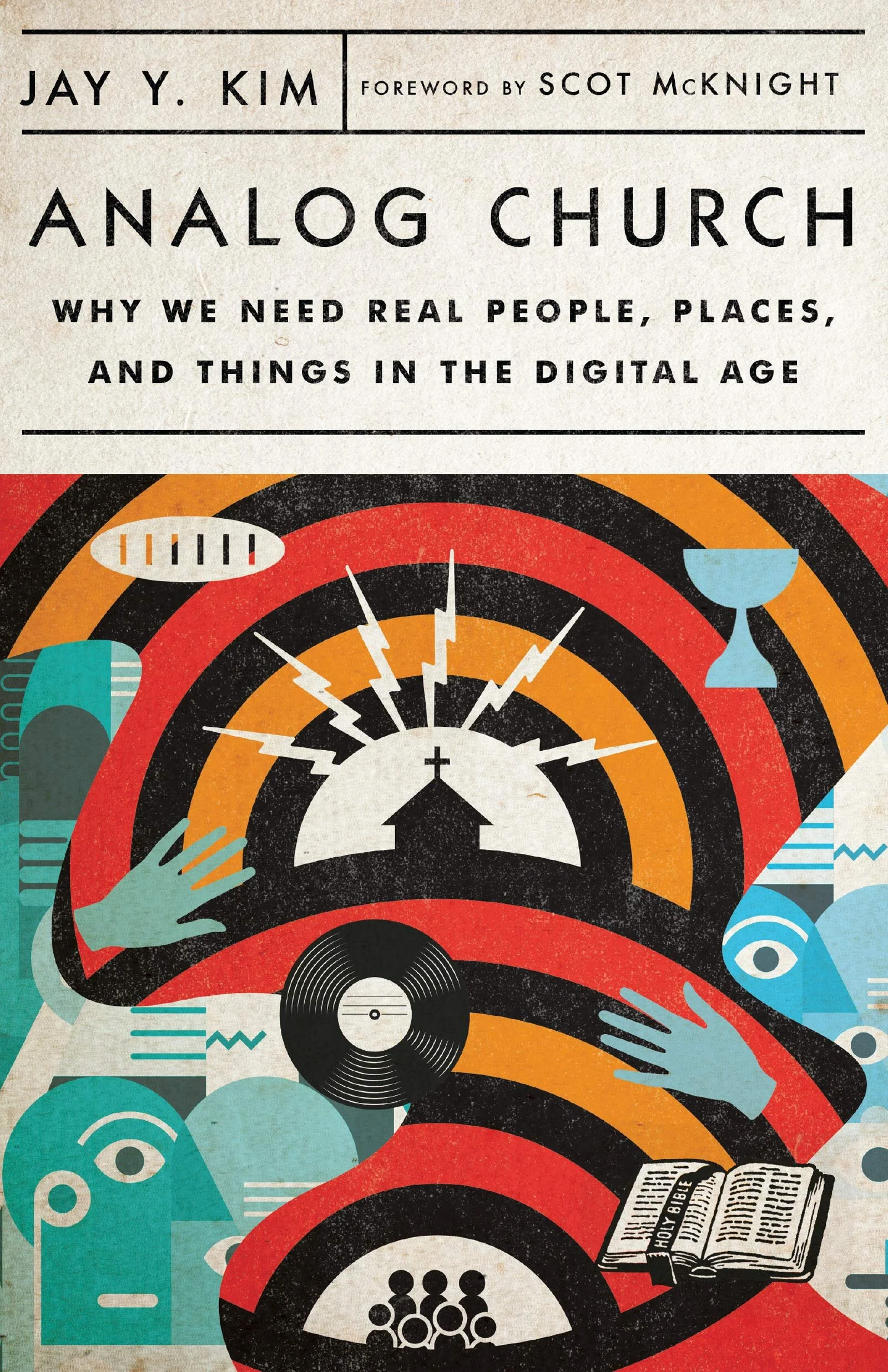Analog Church
Who Should Read It?
I think anyone who is in any time of leadership position at church should read it, because the leaders can set a tone and influence the culture of the church.
Anyone who is interested in how the digital age impact the church should read this book.
Anyone who feels a draw to analog, in person, interactions and relationships should read it to see how the digital age impacts humanity and what are the benefit of analog interactions.
How the Book changed me
This book has changed my way of thinking about what the church should be. Some of the concepts aren't new, but when it is put into a range or being compared, it made me think about ways I can grow in being more like Christ in this world.
Some of the questions I am asking myself is how am I participating in whole body worship? In what way am I interacting with people with the goal of building relationships and commune with one another? How should I shift the way I interact with the scripture to take into consideration that scripture was read out-loud as a community when it was put together?
When I am interacting with the people in my life, I begin to notice myself wanting to put down my phone, engage in conversations and experiences, and desire to build relationships rather than just gathering information. It has improved the quality of my connections, and I am interested in how deep these relationships would go.
What is the book about as a whole?
The author wants to persuade the reader the importance of real interactions, in real places, with authentic objects in the digital age.
The book is written for the church context, and how the children of God should believe, ponder, and behave in a digital age.
What is being said in detail, and how?
The author is naming the effect of technological evolution on the human race, and how it impacts the world and the church. The author brought in example of the printing press, the radio, TV, internet, and other technology.
The author dug into 3 areas specifically: worship, community and scripture. He starts the sections with how the digital age impact these three areas and what Jesus teaches about these three areas.
Throughout the book, the author did not diminish the positive impact of technology, but rather speak on the by product of using technology without restraint and consideration.
Is the book true, in whole or in part?
The book provided the perspective regarding how a church should respond to the digital age, and the answer is analog church, where real interactions are valued and examined.
The book spoke about relationship needs time to be developed and it is also messy and uncomfortable at times. I believe this is true, and it is something that is less valued because it is inconvenient and complex.
Why does the author think it is important to know these things?
The author thinks this topic is important because the church's goal should be glorifying Christ through imitating the kingdom. Yet we are often tempted to follow the trend of the world to be relevant and forgot the primary purpose of the church.
Some of these changes are subtle and convenient, so the author believes in pointing out these changes and provide a few alternatives for those who seek real relationships.
Impressions
I think this book was released at a crucial time, right before the pandemic, and as the church is coming back in person and pondering the importance of gathering in person, I think these three elements are important areas for the church to consider.
I think there are many valid points in the book that requires further examination and consideration. For example, the book invites the readers to consider how the church could invite believers to participate more in whole body worship and how to commune with one another rather than just communicating with one another.
